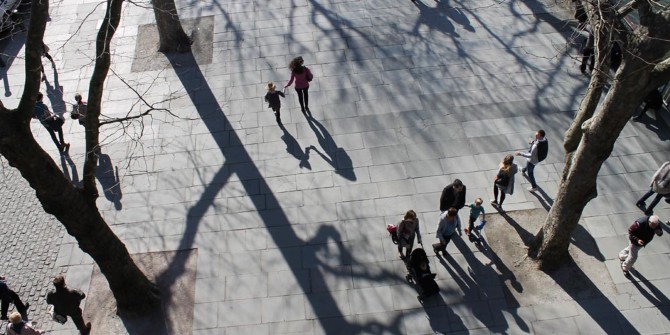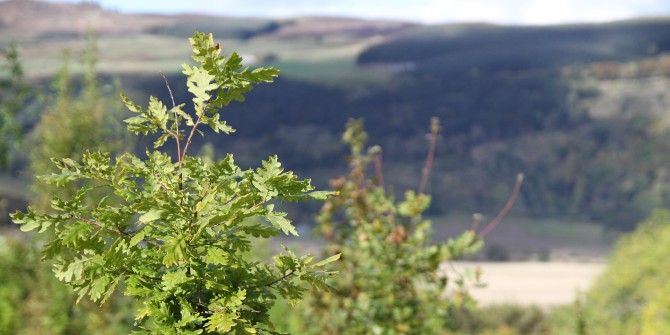Can the public goodwill harnessed during the pandemic be leveraged to tackle the climate emergency? Ellen Holtmaat (LSE) argues that asking citizens to do the right thing can be surprisingly powerful.
While it is currently illegal in the UK to leave your home except for a specific and defined purpose, in practice the order is impossible to police. In other parts of the world, stay-at-home orders were legally prohibited, but were largely obeyed anyway. Similarly, people began to wear face coverings even before it was required. People are voluntarily obeying the government’s instructions, and in many cases doing it willingly to reduce the spread of COVID-19. They are incurring the private costs of social isolation to contribute to a common good.
Asking for people’s help can make a great deal of difference when it comes to creating and protecting of public goods – in this case protecting the health of the population. This voluntary contribution to a common good can be harnessed in other areas of public policy as well – and potentially in mitigating global warming. Many people are aware of the difference their choices about personal behaviour and consumption can make. But a lot more would probably act if the government asked for it.
Why would it make a difference if governments requested certain actions? First of all, many people that might not act out of their own conviction might start to do so if the government asked them to co-operate.
Secondly, currently it is up to those who make more effort to justify their actions. The decision to serve a vegetarian lunch, turn down an invitation to a birthday party you would have to fly to, or ask for your job interview to be conducted over Skype can be awkward and difficult. Government requests can turn this burden of justification around, making it easier for those willing to do so to adjust their behaviour.
Furthermore, a government that simply asks for a change in behaviour respects the norms of freedom and equality. The request creates small social costs for those not abiding by the norm, but nothing more. This means that those for whom a flight is very important can still go, but those who value it only a little might find another solution. It is an efficient way to capture the ‘low-hanging fruit’.

Seeing the government taking action on climate change can reduce the climate anxiety some people are feeling. Working for a shared cause might even generate a sense of community. People generally like to contribute to a goal bigger than themselves. Governments now often nudge people to encourage desirable behaviour, such as by introducing a charge for plastic bags. This is useful. However, adding a government request not to use plastic bags adds a social dimension in which people incur private costs for the public good, providing an altruistic premium (or what some call a ‘warm glow’).
There are, of course, crucial differences between the pandemic and the climate emergency. People may have stayed home simply because they feared for their own health and that of their families. Research suggests, however, that only a small share of the population regarded this as their primary motivation. The immediacy of the threat represented by COVID-19 also contrasts with the deferred threat of the climate emergency. But the majority now accept its reality and, given most governments have signed the Paris Agreement, it does not seem unreasonable to ask citizens to change their behaviour in ways that minimally affect them. Even if these requests would run counter to short-run economic growth – which they may not – it provides incentives for companies to become climate neutral and flourish in the long term.
This post represents the views of the author and not those of the COVID-19 blog, nor LSE.






Very much agree with changing behaviours that are of little cost to us for the benefit of the planet